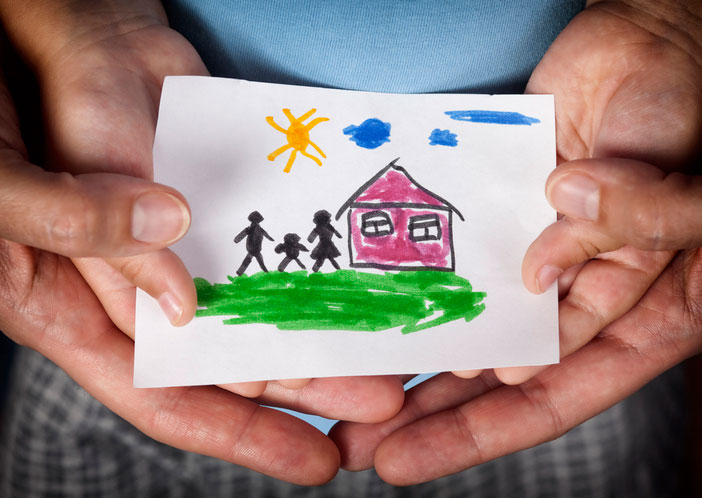What Is Child Advocacy?
One of the most meaningful things a social worker can do is become an advocate for those who are unable to speak for themselves. Nowhere is this need more clear than in the case of children who have been abused or neglected.
Sadly, reports on rates of child abuse and neglect in the United States paint a grim picture. A 2020 report by the U.S. Department of Health and Human Services found that 618,000 victims of child abuse in the past year, equaling a rate of 8.4 victims per every 1,000 children in the country.
Child advocates, who are also sometimes known as child rights advocates, play a deeply impactful role in improving the lives of children who have been victims of abuse. They help take responsibility for children and adolescents who have been removed from their homes, representing them in legal matters and helping them secure safe housing, supporting them through the foster system and work toward permanent placement with adoptive parents.
Child advocates can also provide critical support to children who have broken the law and face delinquency charges, who are also in great need of support and rehabilitation as they face the criminal justice system.
In fact, there are actually two answers to the question, “What is child advocacy?,” as there are two primary types of child advocates: lawyers and social workers. The former takes responsibility for representing children in court, while the latter are primarily involved with ensuring that children in need of help end up in the best circumstances possible for them. This article will focus on the second category.
For those pursuing social work careers who are interested in learning more about the job of a child advocate, and how to become a child advocate yourself, read on.
The Role of a Social Worker in Child Advocacy
Below are the primary responsibilities of a child advocate social worker. As you will see, there are many ways to advocate for children, and a social worker who supports child victims of abuse or neglect incorporates many of these duties into their job.
Assessing Children and Families
When children are in need of advocates, social workers take primary responsibility for attending to the child’s needs outside of court related matters. They play a significant role in evaluating children and families to find the best possible option for the child’s well being.
The first step in this process is forming a trusting relationship with the child so that they speak about their experiences honestly and without fear of judgment. This requires excellent interpersonal skills and deep empathy for children who are often working through serious trauma. Opening up strong channels of communication can be extremely difficult work, but it is imperative to ensuring the child’s safety.
Tracking Down Resources for Victims
Once they have evaluated the impacted child, advocates do the critical groundwork of connecting children with the resources that will be most helpful to them, such as counselors and therapists, medical personnel, and other professionals who can address their needs. The feedback of these experts also plays a significant part in informing a child advocate’s recommendations to the court.

Working with Foster Families
When a child is placed in foster care, child advocates on the social work side of things monitor their progress with their foster families, oftentimes building relationships with foster parents as well to ensure clear reporting on a child’s status. A strong alliance between a foster parent and a child advocate can make the difficult foster care system much easier and, most importantly, as comfortable as possible for the child.
Working with Childrens’ Biological Families
In addition to foster parents, child advocates on the social work side also are the primary facilitators between the child and their biological families. This means they are frequently put in the middle of extremely fraught family dynamics, with their most important objective being to protect the continued safety of the child.
First and foremost, child advocates monitor children and their families to make sure that abuse of any form is not continuing to take place. Sometimes child advocates pay visits to households to conduct in-home assessments of families and child safety. They also can facilitate family visits when a child has been removed from their home. When possible, child advocates hope to reunite children with their biological families; this is one of the final recommendations they may make to the judges who preside over children’s court cases.
Working with Child Advocate Lawyers
Child advocate social workers work in tandem with child advocate attorneys by informing them of their assessments so that the lawyers’ legal approach is planned with the child’s best interests in mind. They can also make recommendations about the child’s permanent placement directly to judges.
If the descriptions above appeal to you, it might be time for you to learn how to become a child advocate.

Why Do We Need Child Advocates?
Beyond the question “What is child advocacy?” is another question: why do we need it?
Child advocates do work that is indispensable for children impacted by abuse and neglect as well as for society at large. They offer care and resources for our most vulnerable and work to ensure a legal system that is fair and judicious in determining children’s long-term safety.
Below are some of the most meaningful ways child advocates can support children in need.
Monitoring
In monitoring children who have been removed from their homes or are victims of abuse, child advocates are key witnesses and evaluators of children’s well-being, offering insights that can ensure a child’s safety both immediately and in the long term.
There are different types of child advocacy where social workers have done a world of good:
- It can be difficult to identify cases of neglect, which is why the presence of a trained specialist can make all the difference in protecting a child whose needs are not being met by their parents. Monitoring for neglect can entail in-home visits to observe families and intervene if their household is not providing the care they need. Typically social workers will monitor children for extended durations to be sure that neglect is not taking place.
- Child advocates are key evaluators when there is suspected abuse of a child, providing recommendations for the child’s immediate housing and ensuring that any medical needs of the child are met. Like in instances of neglect, monitoring tends to occur over a prolonged period of time.
- Sexual Assault. It can be very difficult to identify cases of sexual assault, and doing so can often require a social worker who works hard to build a supportive and trusting relationship with a child so that they know their best interests are being protected.
- Breaking the Law as a Minor. Minors who are being tried for delinquency cases are subject to a decision that will dramatically impact their futures, and a child advocate can provide them necessary counsel on the legal process to come. Children who break the law are themselves frequently in need of support, and social workers who advocate for them can help set them up with the resources to get them back on track. In fact, the increased presence of child advocate social workers has been linked to decreasing rates of juvenile delinquency.
- Regularly skipping school can also be a warning sign of unstable home life and neglect. Child advocates investigate incidents of truancy and provide support to children with the goal of getting them back in school full time. By intervening in cases of truancy, social workers contribute to the overall goal of decreasing numbers of high school dropouts.
Child Impact
For children who are victims of violence or neglect, the intervention of a child advocate can be life-changing. Below are a few of the ways social workers can change a child’s circumstances for the better.
- Safer environment. First and foremost, a child advocate ensures that a child who has been neglected, abused, or assaulted is removed from any circumstances that are unsafe for them and places them in homes where they are secure and cared for.
- New chances. By taking a child out of a dangerous situation, a child advocate is helping them focus on the things that excite them and inspire their curiosity, giving them a new lease on life.
- A voice. Many children who are victims of violence have gone unheard or been unable to speak up for themselves. By listening to children in need and addressing their needs, a social worker can help a child build the skills to protect their own well-being and gain trust in others.
How to Become a Child Advocate
Now that you can answer the question “What Is Child Advocacy?,” you may want to know more about how to become a child advocate. The first steps usually involve an education in social work, whether at the bachelor’s or master’s level. These courses typically involve field work that will give you exposure to the cause that you would like to devote yourself to as well as providing child advocacy experience you can put on your resume.
To look up programs in your state and learn more about how to become a child advocate, visit our child advocacy program index.





